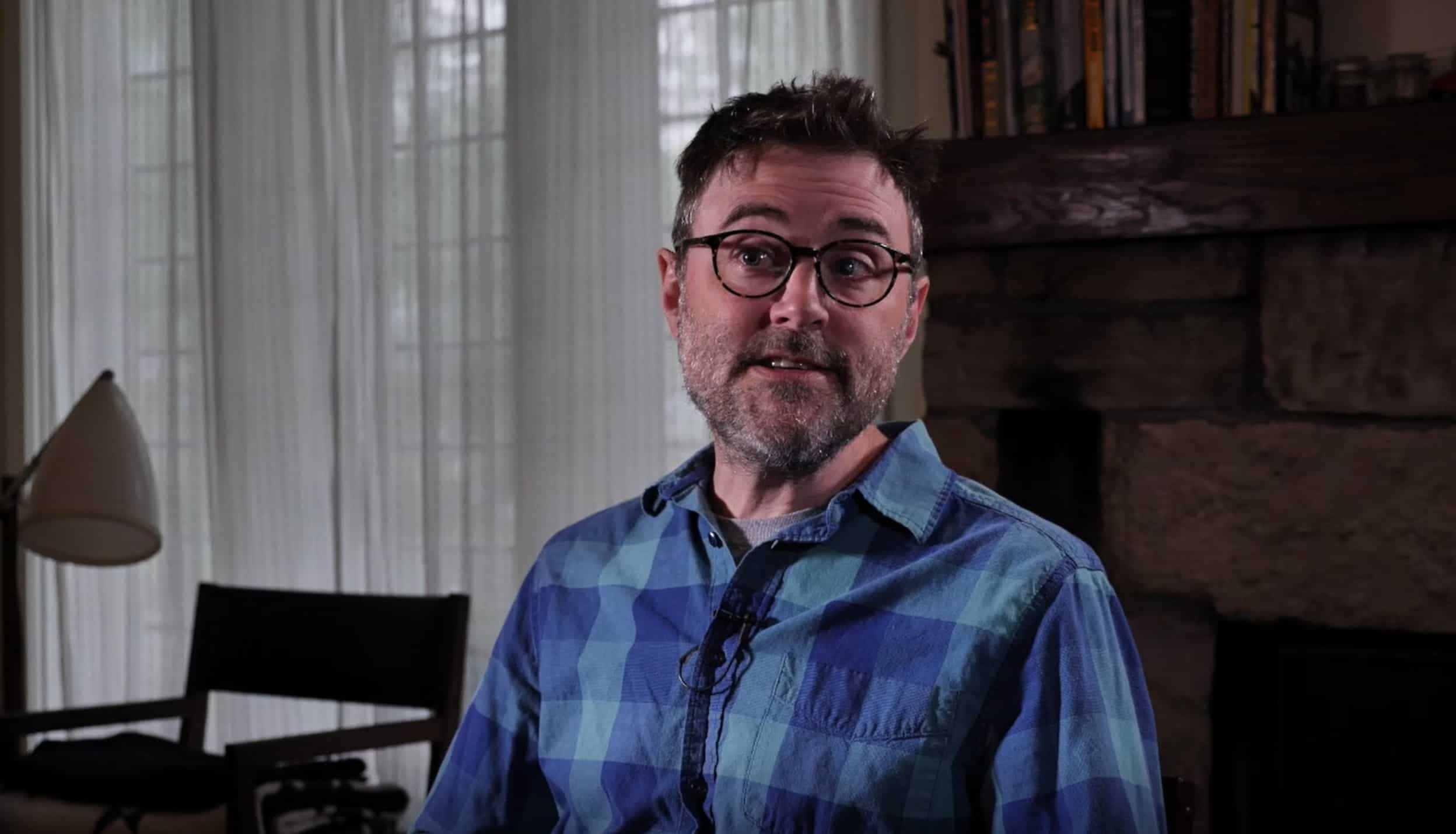Murphy Monroe of Evanston, Ill. used to hide from the light, always wearing protective sunglasses and a hat, limiting his time outdoors, darkening the windows of his car, and having expensive blinds installed throughout his house and – at his expense — in his own office at work.
“At home, I created a room that was completely light free and served as a place for me to recover,” he says.
That is because Murphy suffered from severe light sensitivity (photophobia), which began during childhood and grew progressively worse as he became older.
“Exposure to light would make me generally ill and nauseous and cause my head to feel so heavy that I would have to keep it still on the ground,” he recalls. “I saw many kind and helpful practitioners who acknowledged my problem but could only recommend sunglasses, vitamins, beta-blockers, migraine medications. Nothing worked. Never did I think that a solution ending decades of struggles would one day be found in a pair of prescription eyeglasses from a place just a 20-minute drive from my home.”
Not just any pair of eyeglasses, of course, but highly individualized “brain” glasses that effected what Murphy calls “the most profound change I ever could have imagined in my life.”
Today, “I can awake, lift my face to the sky, and let the sunlight wash over me. The feeling of sunlight on my skin and face is life-affirming. I can enjoy the outdoors now with family and friends and even sit in the stands and watch an entire baseball game without having to run back indoors long before the game is over,” Murphy says.
And he credits it all to the work of optometrist Deborah Zelinsky, OD and her team at the Mind-Eye Institute in Northbrook, Ill. Dr. Zelinsky is founder of the Institute and its executive director for research. She is internationally known for her application of advanced optometric science in improving brain function in patients with concussions, traumatic brain injuries, neurological disorders, stroke, and learning disorders, including attention deficit hyperactivity (ADHD) and autism spectrum disorders.
“Our goal at the Institute is to build better brain processing by developing visual skills, bringing relief to many patients,” Dr. Zelinsky states. The Mind-Eye Institute addresses many symptoms of brain injury and neurological disorders, including light and sound sensitivity, by prescribing highly individualized therapeutic eyeglasses following extensive patient testing.
“These are not eyeglasses for sharpening eyesight to 20/20, but for improving retinal and visual processing,” Dr. Zelinsky emphasizes.
“Brain” glasses bend light in different ways across the retina, which is composed of brain tissue and is part of the central nervous system. Light is the way in which the retina communicates with the brain, and the brain responds. The light triggers electrical signals that propagate through nerves. In fact, the retina helps route information through multiple pathways to the brain’s cortex. Variance in light signals can create new brain signaling pathways that are uncorrupted by injury or disease or rebuild (or more often, circumvent) damaged ones, thereby enhancing a patient’s spatial awareness and perception.
“Part of visual processing requires central and peripheral eyesight to function in synchronization with listening, as well as the other sensory inputs. Another part of visual processing includes internal visualization and planning, enabling people to respond appropriately to changes in their environment,” Dr. Zelinsky explains.
When brain circuitry is disrupted due to injury or neurological disorders, people may exhibit inappropriate reactions and responses to movement, sounds and light. “Dr. Zelinsky told me that my light sensitivity may have resulted from an unnoticed childhood head injury,” says Murphy.
It was this light sensitivity that prompted Murphy to turn from a planned career as an actor to one involving non-profit management, communications, and marketing. “I was keenly aware that trying to recall a script while looking directly at lights on stage would be far too difficult and stressful,” he says.
This same light sensitivity prompted him to seek offices without windows and find refuge in more dimly lit company hallways or lobbies to do his work.
But his wife’s reading of a New York Times review of the 2015 book Ghost in My Brain is what eventually sent Murphy, now 47 years of age, on a journey to recovery. In the book, author Clark Elliott, PhD, a DePaul University Chicago professor, details years of struggles following his own brain injury in a car collision and describes the successful efforts of Dr. Zelinsky and cognitive restructuring specialist Donalee Markus, PhD, of Designs for Strong Minds in Highland Park, Illinois.
“I read a few chapters and decided to make an appointment at Mind-Eye,” Murphy says.
“With the exception of my wife, everyone in my family, including me, were at first skeptical about what Mind-Eye could do,” Murphy remembers. “Especially skeptical were my parents who had lived with my problem as a child. How could a pair of eye glasses solve my problems?”
But solve them they did.
Skepticism became belief within about three weeks after Murphy began wearing his first pair of “brain” glasses following extensive testing at the Mind-Eye Institute?
“During my first visit, Dr. Zelinsky had looked at me and said, ‘I can help you.’ Two weeks later, my new lenses arrived and started working quickly. But it took about a month before I let myself believe that the glasses were, indeed, causing the palpable relief I was experiencing,” Murphy says. “I did not believe it; my family did not believe it, but, yes, those glasses were what took away all my light sensitivity,” says Murphy.
“Dr. Zelinsky profoundly changed my life. I spent years with a light sensitivity that made me deeply, deeply ill. Going to the Mind-Eye Institute has been the best decision I have ever made.”

Success Stories, Processing Disorders
From Darkness to Light, Brain Glasses Help Him Find His Way
Call to Mind-Eye Institute Proves to Be ‘Best Decision I Ever Made’
